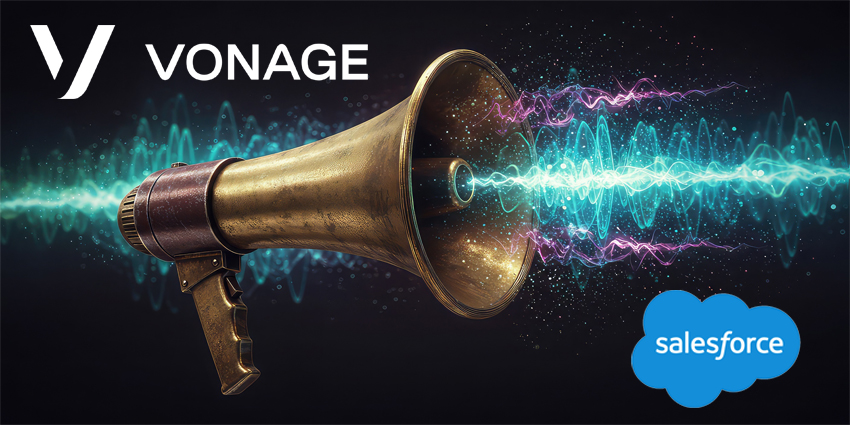This week, CCaaS leader NiCE announced it was acquiring Cognigy, one of the pioneers in the conversational AI space, for $955MN.
That $955MN figure represents approximately an 11x multiple on Cognigy’s expected FY26 revenue of $85M.
The conversational AI stalwart had raised $175M in capital and debt, so the near billion provides a solid exit for employees and investors at the company.
Notably, the purchase brings together two companies widely regarded as market leaders in their respective spaces.
Indeed, NiCE has long been recognized as a leader in analyst reports such as the Gartner Magic Quadrant and Forrester Wave for CCaaS. Similarly, Cognigy scored well in the Forrester Wave for Conversational AI and the Gartner’s Competitive Landscape for Conversational Solutions.
Initially, Cognigy came to market by partnering with contact center providers, such as Avaya, Genesys, RingCentral, and others. Still, its solution was strong enough to stand on its own, and it landed some marquee brands such as Lufthansa, Mercedes, Allianz, and DHL.
The question of why NiCE made this move should be obvious. AI agents are the way forward for customer experience.
Indeed, in the next few years, when people (or customer AIs) reach out to a brand, an AI agent will likely be preferred over humans. Some may disagree, but to the naysayers, think back to the early days of online banking, where people skipped the ATM to deposit money with a person as they felt more comfortable with a human. Over time, sentiment changed, and no one today would conduct business with a bank without an internet presence.
Against that backdrop, here are answers to some common questions enterprise leaders and industry professionals have raised over the acquisition.
Why Buy Instead of Build?
This question is always asked when vendors acquire. Bringing in another company adds integration issues, there can be cultural challenges, pricing model changes, and other factors.
On the financial analyst call, Scott Russell, CEO of NiCE, explained why they chose to buy versus build. The most obvious reason was that it accelerated their mission of delivering AI-first CX by “unlocking new use cases, workflows, and adjacent markets.”
However, talent was another factor. Russell discussed the war on AI talent, which is something many CEOs have spoken about. AI engineers are hard to hire and sometimes harder to keep.
NiCE will add the talent from Cognigy and offer incentives to get the people to stay. Both companies seem well-aligned culturally, so don’t expect much talent churn.
Did NiCE Overpay for Cognigy?
Some investors have suggested that NiCE did not have to pay quite so much for Cognigy, but an 11x multiple of forward-looking revenue does not seem out of line for an AI company.
Also, if an acquisition is a good one and helps transform the company, there is an element of “you can’t really overpay.”
Think back to when Cisco acquired Selsius to move into VoIP. The company paid $145M, which seemed like a lot at the time. Had the company paid double or even triple that, it still would have been a great purchase.
For NiCE, the company has historically used acquisitions to strengthen its position in adjacent markets. As an example, the company recently acquired Playvox to extend its leadership in the workforce engagement management (WEM) space, and that acquisition has seemingly caused little disruption.
What Happens to the Existing Partners of Cognigy?
This is an interesting question as Cognigy is the AI that powers many NiCE competitors such as RingCentral, Genesys and 8×8.
On financial and industry analyst calls, both companies committed to supporting the partnerships, which is the right thing to do.
Given that Genesys is NiCE’s biggest rival, it will likely look for another partner, but RingCentral and NiCE have had a long, successful partnership, and that’s likely to stay in place, as will the one with 8×8.
Is There Much Overlap Between Cognigy and NiCE?
The customer overlap is very low. This should not be a surprise given the fragmented nature of CX, and it creates an excellent opportunity for NiCE to sell into the Cognigy base and vice versa.
Cognigy has a strong presence in Europe, and this will boost NiCE’s footprint I that region.
From a product perspective, the two companies are complementary. NiCE offers software for self-service and human assist. Meanwhile, Cognigy can be brought in for AI-enabled services.
Post integration, this can be managed as a single system via one pane of glass to allow for better interoperability between self-service, AI, and humans.
While NiCE could have chosen to partner, this gives them direct control of the roadmap.
What Does This Mean for the Industry?
Often, when an acquisition like this is made, it signals a level of market maturity. NiCE would not have pulled the trigger without the customer demand.
The CCaaS giant is choosing to own the AI capabilities that could stimulate other companies to make similar moves, with Kore.ai and Yellow.ai being good take-out candidates.
Russell’s comments about customers wanting to manage everything from one pane of glass address a challenge that’s long overdue to be solved in CX, and that’s the fragmentation of systems.
While the management of it is one headache, with AI, silos of data lead to incomplete insights. By owning the roadmap and the data, the CX providers can offer more accurate AI, and that’s the reason others will likely follow NiCE’s lead.
Final Thoughts
NiCE is the 800-pound gorilla within the contact center industry, and the purchase of market-leading Cognigy could help extend its market leadership.
While its own leadership has shifted from Barak Eilam to Scott Russell, the mission remains the same: to offer the industry’s most complete platform.
The bottom line: this is a great acquisition for NiCE and sets them up well for the emerging agentic era.







